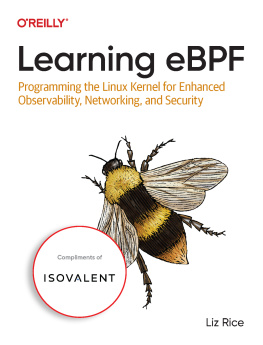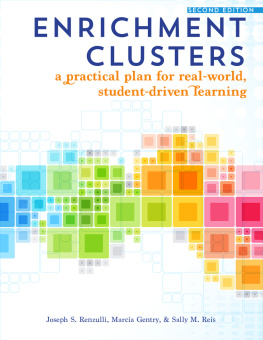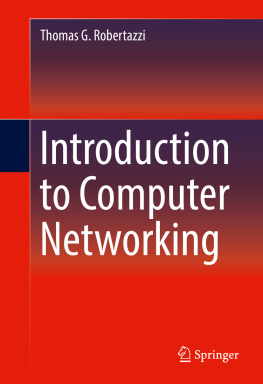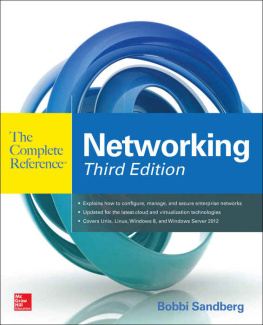HIGH-TECHNOLOGY CLUSTERS, NETWORKING AND COLLECTIVE LEARNING IN EUROPE
High-Technology Clusters, Networking and Collective Learning in Europe
Edited by
DAVID KEEBLE and FRANK WILKINSON
ESRC Centre for Business Research, University of Cambridge
On behalf of the TSER European Network
First published 2000 by Ashgate Publishing
Reissued 2018 by Routledge
2 Park Square, Milton Park, Abingdon, Oxon OX14 4RN
711 Third Avenue, New York, NY 10017, USA
Routledge is an imprint of the Taylor & Francis Group, an informa business
Copyright David Keeble and Frank Wilkinson 2000
All rights reserved. No part of this book may be reprinted or reproduced or utilised in any form or by any electronic, mechanical, or other means, now known or hereafter invented, including photocopying and recording, or in any information storage or retrieval system, without permission in writing from the publishers.
Notice:
Product or corporate names may be trademarks or registered trademarks, and are used only for identification and explanation without intent to infringe.
Publishers Note
The publisher has gone to great lengths to ensure the quality of this reprint but points out that some imperfections in the original copies may be apparent.
Disclaimer
The publisher has made every effort to trace copyright holders and welcomes correspondence from those they have been unable to contact.
A Library of Congress record exists under LC control number: 00132849
ISBN 13: 978-1-138-73160-8 (hbk)
ISBN 13: 978-1-315-18890-4 (ebk)
Contents
David Keeble and Frank Wilkinson
Christian Longhi and David Keeble
Christine Tamsy and Rolf Sternberg
Helen Lawton Smith and Michel de Bernardy
Roberto Camagni and Roberta Capello
sa Lindholm Dahlstrand
Clive Lawson
David Keeble
Frank Wilkinson and Barry Moore
Roberto Camagni is Professor of Economics and Urban Economics at the Politecnico di Milano. He has worked extensively on innovation diffusion theory and on urban and regional economics. He is President of GREMI and has been Chairman of the Italian Regional Science Association. During the Prodi Government he was Head of the Department for Urban Affairs at the Presidency of the Council of Ministers. His textbook on Urban Economics, in Italian, has been translated into French and is forthcoming in Spanish.
Roberta Capello is an associate Professor of Regional and Urban Economics at the University of Molise, and of Economics at the Politecnico of Milan. She has been the Secretary of the Italian Section of the Regional Science Association International and is now Member of the Organising Committee of the European Regional Science Association and Treasurer of this association. She has worked extensively on innovation diffusion theory and on urban and regional economics.
Michel de Bernardy is a researcher in Geography associated with the Laboratoire de la Montagne Alpine at the Joseph Fourier University, Grenoble. A longstanding member of GREMI, his main research areas are innovative processes and adaptive and endogenous local capabilities for sustainable development.
David Keeble is Lecturer in Economic Geography, Fellow of St Catharines College, and former Assistant Director and SME Programme Director of the ESRC Centre for Business Research at Cambridge University. His research interests focus on the geography of new firm formation, regional and urban-rural variations in small business innovation and growth, and the growth of high-technology clusters, in Britain and the European Union.
Clive Lawson is a Fellow of Girton College, Cambridge, and Research Associate at Cambridge Universitys ESRC Centre for Business Research. He has recently worked on regional learning and networking, and various issues relating to economic methodology.
Helen Lawton Smith is Reader in Local Economic Development, Centre for Local Economic Development, Coventry University. She was previously Research Director (199295) then Director of Science Policy Studies (199298) at the Regulatory Policy Research Centre, Hertford College, Oxford. She is Senior Research Associate at the School of Geography, Oxford University and a Research Associate at the Centre for Business Research, University of Cambridge. Her research interests include the geography of innovation and the governance of innovation systems.
sa Lindholm Dahlstrand is Associate Professor at the Department of Industrial Dynamics, Chalmers University of Technology, Goteborg, Sweden. She works in the field of technology management and her research focuses on small technology-based firms and the role of entrepreneurs in the development of firms and economies. She is especially interested in the study of acquisitions and spin-offs as various entrepreneurial forms of promoting innovativeness and growth.
Christian Longhi is a Senior Researcher at the IDEFI-LATAPSES (CNRS and University of Nice-Sophia-Antipolis). His main research interests cover the fields of innovative strategies of firms and their impact on local development, of regional and national patterns of innovation, and of knowledge infrastructures. His empirical analysis has been applied to an economic understanding of science and technology parks (the technopolis phenomenon).
Barry Moore is Assistant Director of Research in the Department of Land Economy, Cambridge University and Fellow in Economics of Downing College. His research interests focus on urban and regional policy evaluation in the UK and Europe Union, and the growth of innovative high-technology SMEs and university-industry relationships.
Rolf Sternberg is Professor of Economic Geography and Head of the Department of Economic and Social Geography, Faculty of Economics and Social Sciences, University of Cologne. His research focuses on the consequences of technological change for regional development, which he analyses theoretically as well as empirically. He has also published extensively on the implications of national, regional and local technology policies for regional development.
Christine Tamsy is researcher and lecturer at the Department of Economic and Social Geography of the University of Cologne. Her fields of research are industrial geography, entrepreneurship research (especially innovation centres), and sustainable regional development.
Frank Wilkinson is a Senior Research Officer in the University of Cambridge, Department of Applied Economics and the ESRC Centre for Business Research, and a Life Fellow of Girton College, Cambridge. His research is concerned mainly with the effects of industrial and labour institutions and organisations on economic performance.
DAVID KEEBLE AND FRANK WILKINSON
1.1 Introduction, Aims and Objectives
This book brings together and synthesises findings from original research by a group of leading European researchers into the recent evolution and dynamic processes underpinning the growth of key European regional clusters of technology-based small and medium-sized enterprises (SMEs). The growth of these regional clusters of technology-intensive firms, as exemplified in such regions as Cambridge, Oxford, Grenoble, Sophia-Antipolis, Munich and Goteborg, represents one of the most fascinating and arguably significant examples of the emergence since the 1970s of what have been termed new industrial spaces (Scott, 1988; Storper, 1993, 1995) and innovative milieux (Aydalot, 1986; Aydalot and Keeble, 1988a; Camagni, 1991a; Ratti et. al., 1997) in both previously non-industrial areas and through the restructuring of existing metropolitan and industrial regions. While large firms are often involved in the growth of these regional high-technology clusters, all are characterised by substantial numbers of small, new and innovative enterprises engaged in technologically-advanced manufacturing and service activities. Notwithstanding the impact of the early-1990s European-wide recession, most of these clusters appear to have been growing rapidly in the 1990s, through processes such as new firm spin-off and endogenous expansion: and many observers have suggested that they are characterised by new forms of production organisation, based on high levels of inter-firm collaboration and cooperation, strong links with local knowledge centres such as universities, and the development of a regionally-embedded capacity for collective learning and technology development linked to the growing local concentration of scientific, technological and managerial expertise.











